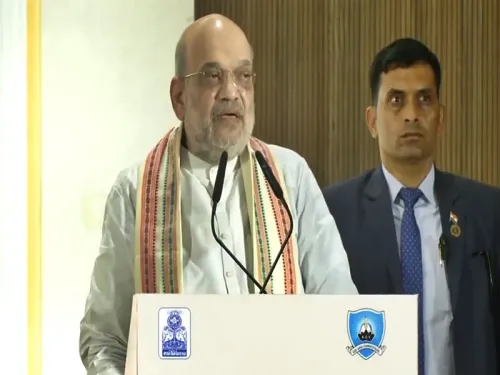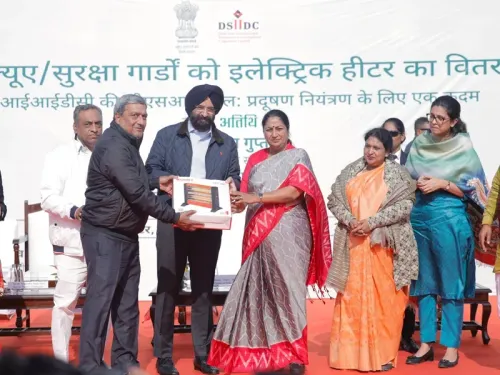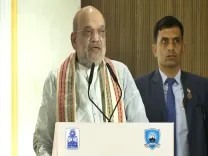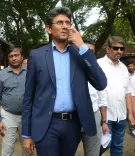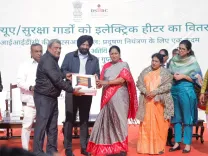Rajasthan Government Holds Exclusive Power Over District Formation and Abolition: Minister
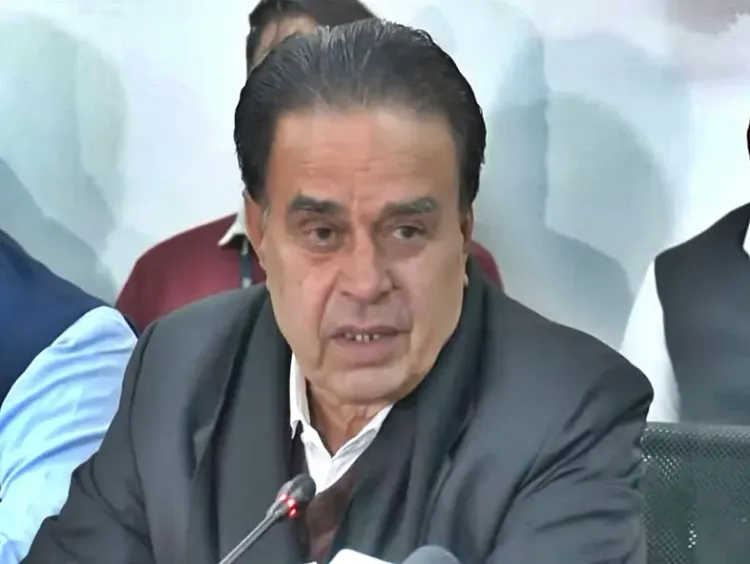
Synopsis
Key Takeaways
- Exclusive Authority: Rajasthan government holds the sole power to modify districts.
- Legal Framework: Based on Rajasthan Land Revenue Act, 1956.
- Impartial Process: Recommendations based on Parmesh Chandra Committee.
- Public Welfare: Decisions made transparently for long-term benefits.
- District Viability: Minimum population criterion established for districts.
Jaipur, Feb 6 (NationPress) Rajasthan Parliamentary Affairs Minister Jogaram Patel declared in the Legislative Assembly on Thursday that the state government possesses exclusive authority to create, abolish, or modify districts, divisions, and other administrative units within the state.
“This encompasses the establishment and reorganisation of new districts, subdivisions, tehsils, sub-tehsils, and villages,” the minister stated.
In response to a query raised during Zero Hour, Patel referenced Sections 15 and 16 of the Rajasthan Land Revenue Act, 1956, confirming the state government’s complete jurisdiction over district-related decisions. He highlighted that the recommendations of the current committee were based on the earlier constituted Parmesh Chandra Committee and adhered to a structured, impartial process, free from any political interference.
He further mentioned that the decision to dissolve certain districts was reached after thorough analysis, taking into account vital factors such as geographical location, population, administrative feasibility, developmental requirements, and the availability of essential facilities.
“Consequently, nine newly formed districts have been abolished,” he said.
Patel reaffirmed the state government’s dedication to public welfare, assuring that the decision was made with total transparency, objectivity, and a long-term perspective.
He also indirectly commented on former Chief Minister Ashok Gehlot, stating, "Before departing, the former government engaged in an electoral strategy that ultimately backfired. The very leader they relied upon was defeated and left powerless."
He asserted that the Congress party never prioritized district creation.
“Only one district was established during their governance, while all new districts emerged during BJP’s tenure. Even for the establishment of a tehsil or a hospital, a comprehensive evaluation of the entire system is conducted. Creating a single district incurs costs ranging from Rs 800 to Rs 1000 crore, yet no financial provisions were allocated for this restructuring. In Madhya Pradesh, the largest district reorganisation occurred in 1998,” he claimed.
He noted that Rajasthan merely imitated Madhya Pradesh’s model and hastily executed the process in an attempt to retain power. However, no solid groundwork was laid for these newly formed districts.
"In contrast, our government has impartially reorganised the districts, taking into consideration all essential elements. A minimum population criterion of 10 lakh per district has been established to ensure viability," he asserted.
Earlier, during Zero Hour, the Congress party created a commotion regarding the decision to dismantle districts established during Gehlot's term.
Congress MLAs Suresh Modi and Ramkesh Meena raised the issue, followed by Leader of Opposition Tika Ram Jully, who questioned the response of Law and Parliamentary Affairs Minister Jogaram Patel.
As the uproar surged, Congress MLAs stormed into the Well of the House, leading the Speaker to adjourn the proceedings.
Congress MLAs Suresh Modi and Ramkesh Meena challenged the abolition of Neem-Ka-Thana and Gangapur City districts, deeming the action arbitrary.
Suresh Modi accused the government of employing a "pick and choose" policy, alleging that the Panwar Committee, which reviewed districts, visited all districts apart from Neem-Ka-Thana.
He claimed that the committee was biased and acted under governmental directives. Instead of applying objective criteria, districts were abolished based on political motivations.
Nine districts were annulled and three divisions formed under the Gehlot government were cancelled recently in a Cabinet meeting by the Rajasthan government.



